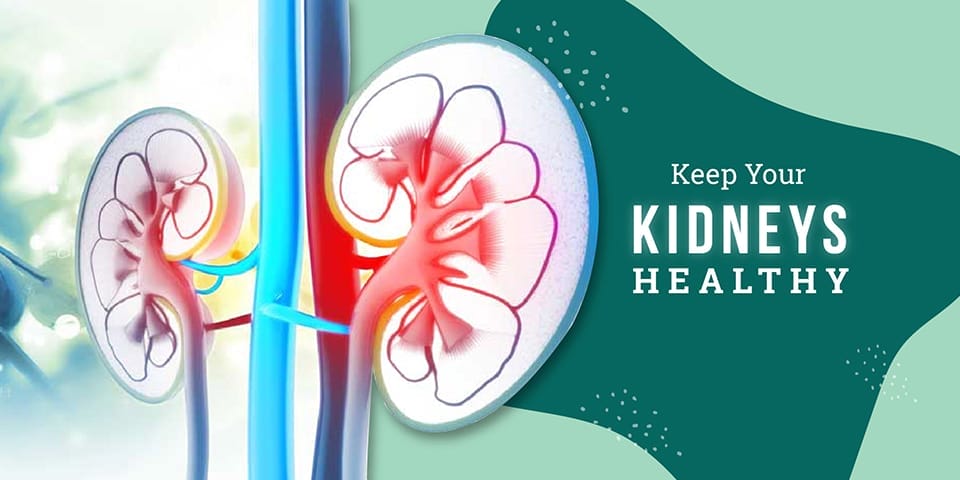Kidney diseases are spreading worldwide at an increasing rate. It is found in the elderly, adults, and in kids too. Our modern system of medicine has been putting a lot of effort into helping kidney patients. The treatment procedure is still able to provide relief from symptoms only. On the other hand, Ayurvedic medicines for kidney diseases help treat the disease from its root cause.
What is the basis of Kidney Ayurveda?
Our traditional medicinal science ayurveda describes the body’s three main energies: Vata, Pitta, and Kapha. As per Ayurveda, these basic energies, or doshas, exist in each and every one of us. Everyone possesses the doshas, however, to varied degrees of strength and size. Most often, one dosha predominates over the others, determining the person’s general constitution. This is also referred to as the person’s Prakriti.

The three doshas are balanced in a typical, healthy person. Ayurveda claims that diseases manifest when these doshas become vitiated due to an internal or external stimulus. Eating disorders and the type of lifestyle you maintain each day could be the stimulus.
Thus, ayurvedic therapies work in a manner that all three doshas should function at their optimum levels. A person’s Prakriti, or innate constitution, influences the course and mode of treatment. Ayurvedic therapies rely on nature’s healing abilities and the body’s innate abilities to heal. The modern medical system is at odds with Ayurveda. Only certified Ayurveda practitioners can deliver adequate treatment.
What are the treatment procedures for kidney diseases in Ayurveda?
The Naadi Pariksha and Ashtavidha Pariksha are the two most popular methods in the Ayurvedic system for diagnosing any disease. Naadi Pariksha refers to the assessment of the pulse. At the same time, Ashtavidha Pariksha is more thorough and includes Nadi Pariksha and information regarding urine, faeces, tongue, voice, skin, eyes, and general bodily appearance.

These techniques would be helpful for an experienced and qualified Ayurvedic practitioner to identify the underlying issue. These parikshas, or tests, outline a person’s physical and psychological characteristics and shed light on any dosha imbalances.
Following the evaluation, the practitioner will recommend herbal medicines, dietary changes, physical activity, and a few other specific lifestyle modifications to help your body heal and undergo beneficial changes.
There is a widespread misperception that allopathic and ayurvedic medicines for kidney diseases should not be used for a disease altogether. One can also use any method as a complement, if your doctor approves, to hasten healing and recovery.
Ayurveda Helps to Healthy Mind and Body
Ayurveda encourages altering one’s lifestyle to attain a healthy mind and body. Harmonisation of the body, mind, soul, and environment is the major step to attaining a healthy body. This harmonisation can be achieved by using ayurvedic medications. The initial stage of ayurveda treatment is an internal cleansing procedure. It is advised to follow a specific diet, take a few herbal supplements, and, if necessary, engage in specific massage therapy, yoga, and meditation techniques.

The goals of ayurvedic therapies are to increase bodily resistance, get rid of symptoms, and purify the body. It uses natural resources like plants and herbs for these treatments to make life more tranquil and less stressful. Ayurveda first understands the condition’s underlying causes. Additionally, it has been noted that kidney illness patients have altered Agni, which impairs food digestion and results in the creation of “ama.” Today’s lifestyles are drifting us away from nature; irregular eating patterns, alcohol consumption, cigarette smoking, and high levels of stress lead to disturbed Agni.
Along with considering the patient’s capacities, Ayurveda evaluates ailments in terms of Dosha, Dushya, and Adhisthana. After following accurate identification and assessment, appropriate therapy actions are planned. The current medical system is very expensive. Due to this high cost, cheap, risk-free medical treatment with the least side effects is always looked for. Our traditional medical system, Ayurveda, can offer alternative therapeutic options. We classify every kidney ailment as “Prameha” in Ayurveda.
Treatments for Kidney Diseases in Ayurveda
Ayurveda says that all urinary diseases are caused due to disturbed Vata dosha and disturbances in Pitta and Kapha. Everybody has a different dominant dosha-vata, pitta, and Kapha. As a result, tailored care is to be provided, taking the doshas into account. Virechana, swedana, mutrapravartaka, raktaprasadaka, etc. are some common suggested treatments for renal diseases in Ayurveda. Ayurveda also describes the fundamentals of pathya-apathyas (compatibles-incompatibles). Rasayana Chikitsa, considered in Ayurveda, uses herbs that aid in nephron regeneration.
Kidney disorders known as Mutravaha strotosdushti in Ayurveda are also treated utilising Basti (Enema therapy). A medicated detox therapy is injected through the urinary system during this process. This works for removal of toxins that have built up in the urinary system. Additionally, the aggravating doshas that could harm the kidneys are also eliminated in the treatment.
During the treatment in Ayurveda, Diet (Ahaar) and lifestyle (Vihaar) are changed as per the requirement of the disease. These suggestions are decided to combat kidney diseases. Herbs like ‘Punarnava,’ ‘Gokhuru,’ and ‘Varuna’ widely used in Ayurveda are found to be patient saviors. For E.g. ‘Varuna’ in Ayurveda has been described as a blood purifier and helps to maintain homeostasis. Similarly, ‘Gokhuru’ is also found helpful in kidney nephron rejuvenation.
Thus, we can say that kidney treatment in ayurveda is possible with ayurvedic medicines.

